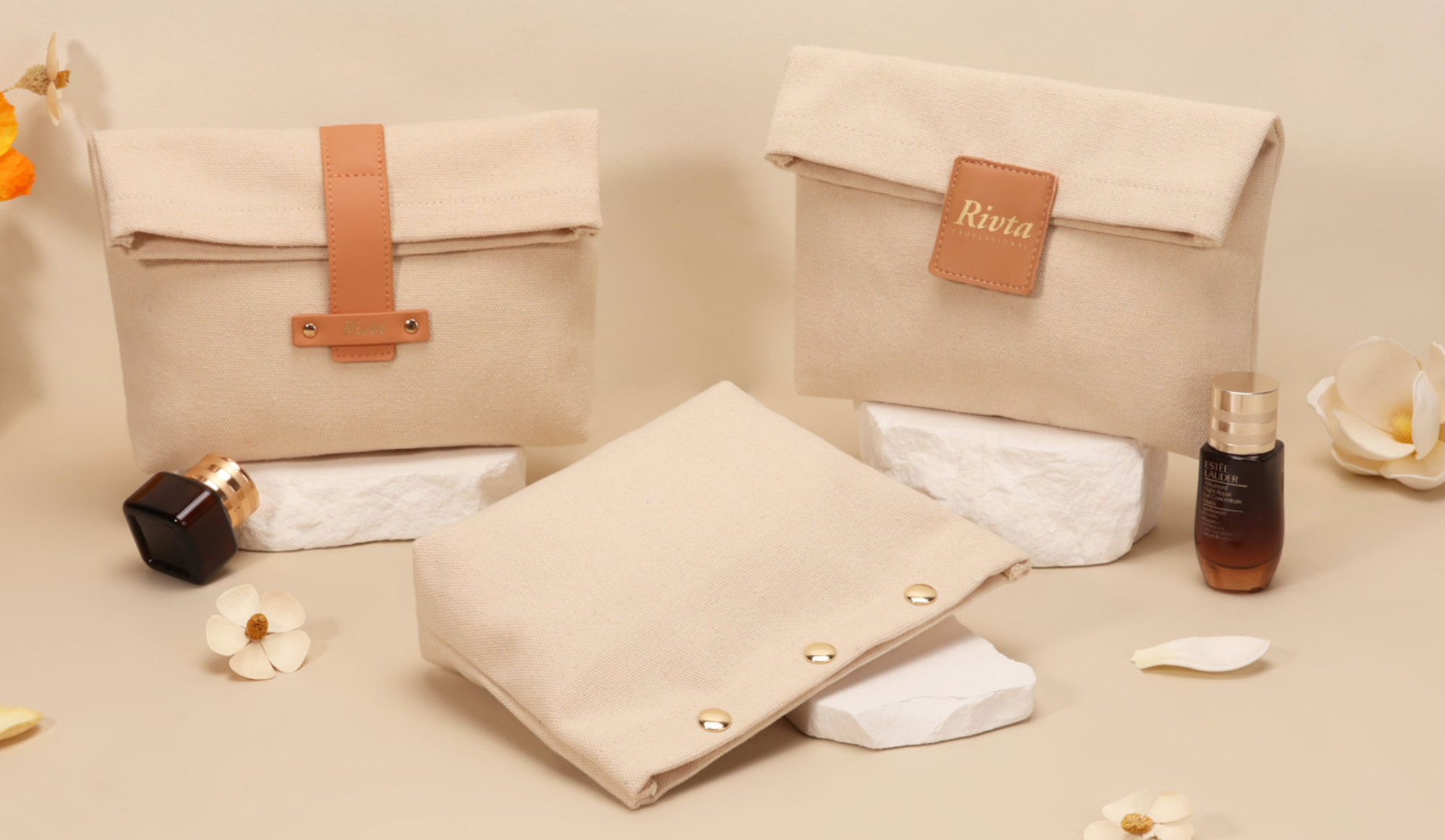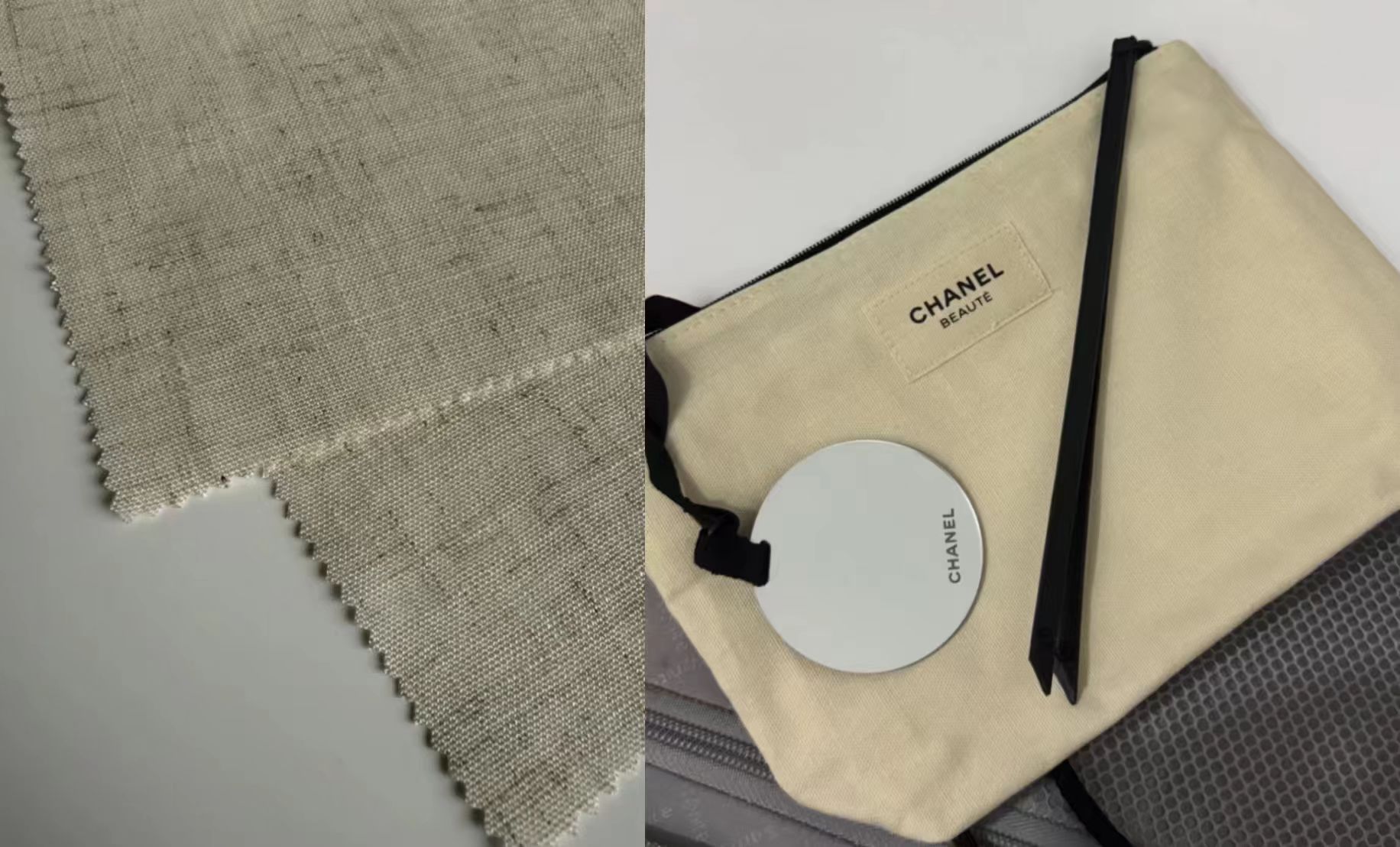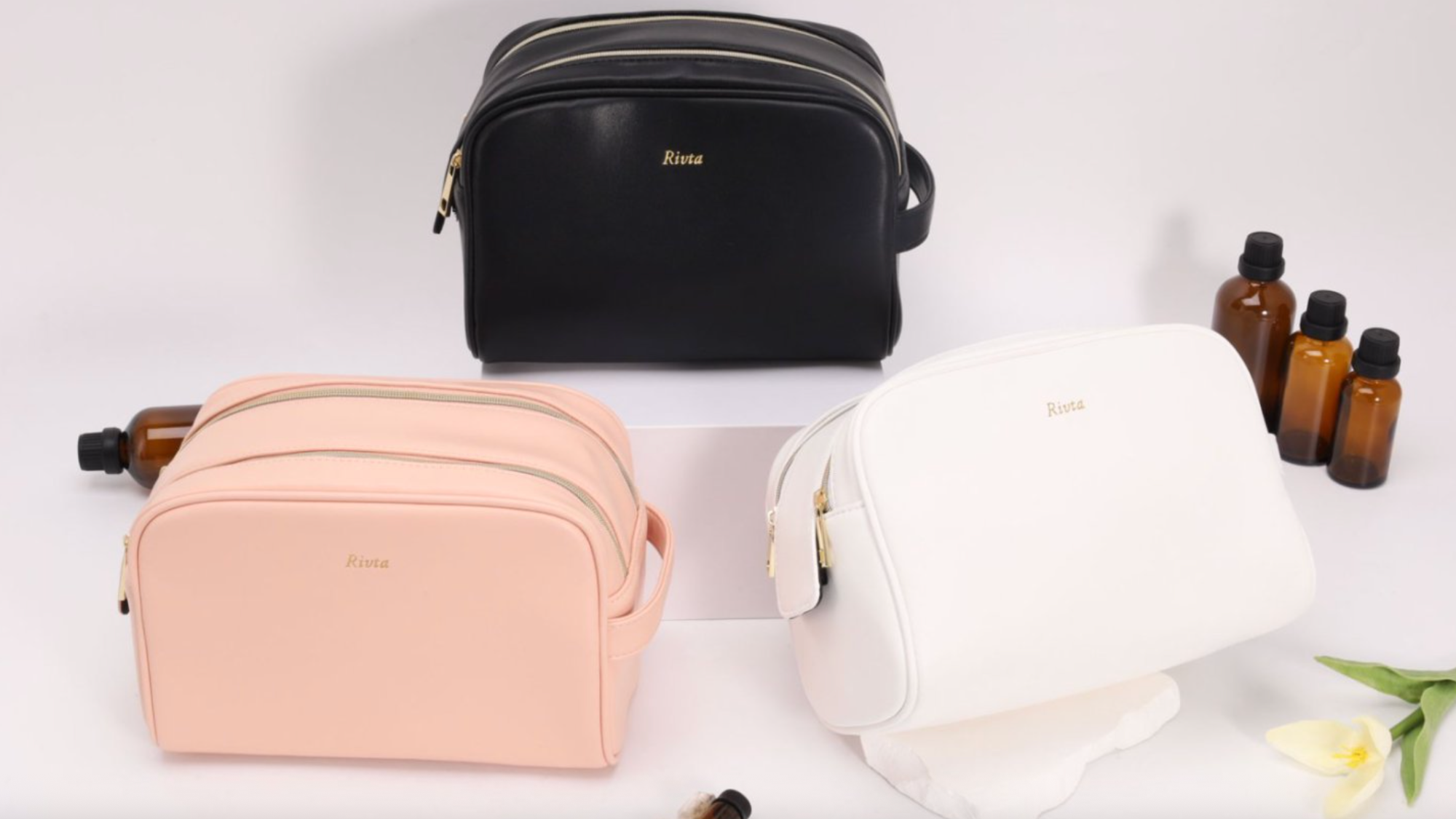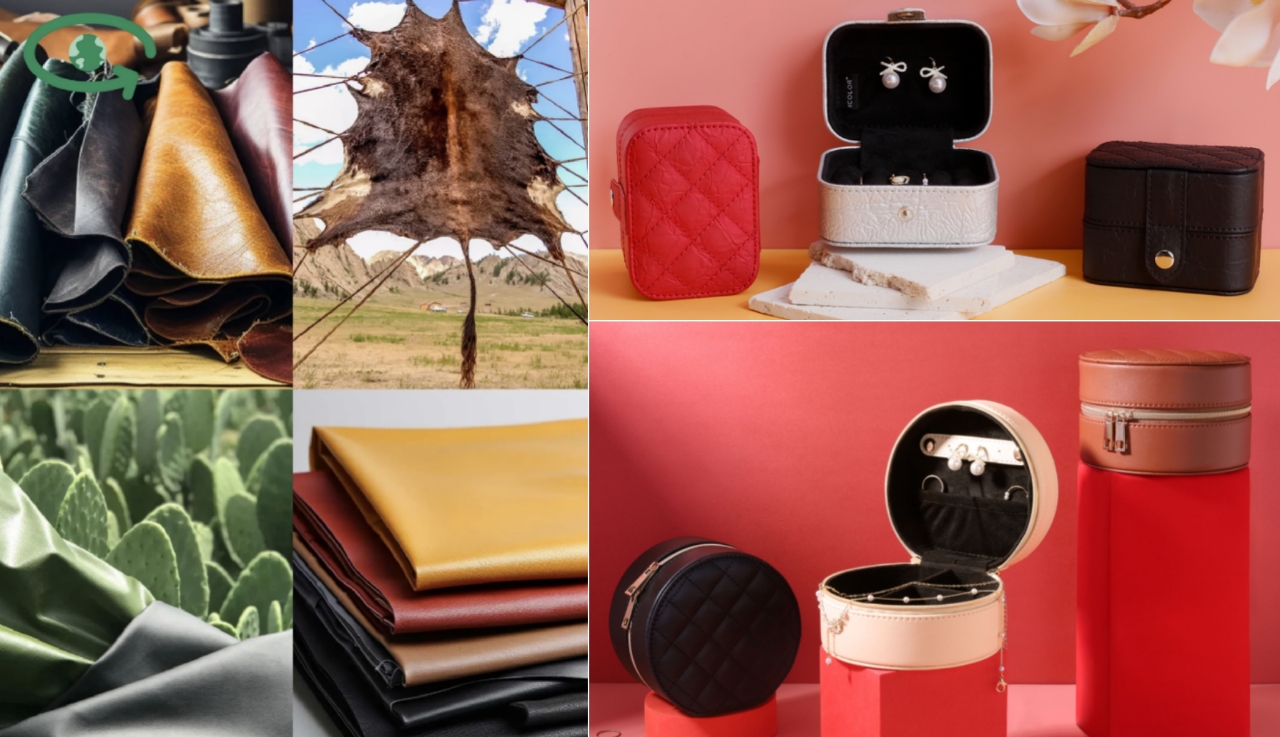Christmas Gifting for Brands: Sustainable Cosmetic Bags or Traditional Gift Boxes?
Introduction: The Festive Dilemma: Sustainable Gifting in the Spotlight
As the festive season approaches, brands worldwide gear up for the annual tradition of Christmas gifting. It's a time for showing appreciation to clients, partners, and employees, fostering goodwill, and strengthening relationships. However, in an era increasingly defined by environmental consciousness, a critical question emerges: how can brands celebrate the spirit of giving while upholding their commitment to sustainability?
This year, the choice between traditional gift boxes and sustainable alternatives like cosmetic bags presents a compelling dilemma. While classic gift boxes have long been the go-to for their perceived graceful and convenience, their environmental impact is becoming a growing concern. Conversely, sustainable cosmetic bags offer a practical, reusable, and eco-friendly solution that aligns with modern values.
This blog post will delve into this festive dilemma, exploring the benefits and drawbacks of each option, highlighting the importance of sustainable choices, and ultimately guiding brands toward more impactful and responsible Christmas gifting strategies.
Table of Contents:
- The Rise of Sustainable Gifting: More Than Just a Trend
- Sustainable Cosmetic Bags: A Gift That Keeps on Giving
- The Environmental Footprint of Traditional Gift Boxes
- Rivta's Commitment to Sustainable Solutions
- Christmas: A Time for Conscious Choices
- Beyond the Gift: Building Brand Loyalty with Purpose
- Sustainable Bags vs. Traditional Gift Boxes: A Comparative Analysis
- Conclusion: Gifting with Impact and Integrity
1. The Rise of Sustainable Gifting: More Than Just a Trend
Sustainable gifting is no longer a niche concept; it has evolved into a significant movement driven by increasing consumer awareness and a global push towards environmental responsibility.
Shifting Consumer Values
Consumers are becoming more discerning, actively seeking out brands that demonstrate a genuine commitment to eco-friendly practices. This shift in consumer behavior is not merely a fleeting trend but a fundamental change in values.
Enhancing Brand Reputation
Brands that embrace sustainability in their gifting strategies can significantly enhance their reputation, attract environmentally conscious customers, and build stronger, more meaningful relationships.
The Environmental Cost of Traditional Gifting
The traditional model of gifting, often characterized by excessive packaging and single-use items, is increasingly being scrutinized for its contribution to waste and pollution. From the energy-intensive production of materials to the carbon footprint associated with transportation and disposal, the environmental impact of conventional gifting is substantial.
Making a Powerful Statement
Choosing sustainable options is a powerful statement, signaling a brand's dedication to a healthier planet and a more responsible future. It's about aligning corporate values with global imperatives, transforming a simple act of giving into a powerful message of care and consciousness.
2. Sustainable Cosmetic Bags: A Gift That Keeps on Giving
Sustainable cosmetic bags offer a compelling alternative to traditional gift boxes, embodying both practicality and environmental responsibility.
Lasting Utility and Brand Exposure
Unlike single-use gift packaging that often ends up in landfills, a well-designed cosmetic bag provides lasting utility, serving as a constant reminder of your brand. These bags can be used for organizing makeup, toiletries, travel essentials, or even as a stylish clutch, integrating seamlessly into the recipient's daily life. This extended lifespan translates to continuous brand exposure, far beyond the initial unwrapping moment.
Eco-Friendly Materials and Production
What makes these bags truly sustainable lies in their material composition and manufacturing processes. Many eco-friendly cosmetic bags are crafted from materials such as organic cotton, recycled polyester (rPET), hemp, jute, cork, and even innovative materials like washable kraft paper or Tyvek.
- Organic cotton is grown without harmful pesticides and synthetic fertilizers, ensuring a chemical-free product that can be recycled
- Recycled polyester repurposes plastic waste, reducing the demand for virgin materials and diverting plastic from oceans and landfills
- Hemp and jute are fast-growing, renewable resources that require minimal water and pesticides
- Cork is a natural and renewable material, harvested without harming the tree
These materials not only minimize environmental impact during production but also often boast durability, ensuring the bags withstand regular use, further extending their lifecycle.
Ethical Manufacturing Practices
Beyond the materials, the production of sustainable cosmetic bags often adheres to ethical manufacturing practices, including fair trade principles and reduced water and energy consumption. This holistic approach to sustainability ensures that the gift is not only good for the planet but also supports responsible labor practices.
Reinforcing Positive Brand Image
For brands, offering a sustainable cosmetic bag as a Christmas gift demonstrates a forward-thinking approach and a genuine commitment to environmental stewardship, resonating deeply with eco-conscious consumers and reinforcing a positive brand image. It's a gift that truly keeps on giving—to the recipient, to your brand, and to the planet.
3. The Environmental Footprint of Traditional Gift Boxes
While traditional gift boxes have long been synonymous with elegance and presentation, their environmental footprint is a significant and often overlooked concern. The allure of beautifully wrapped presents often masks the substantial ecological cost associated with their production, use, and disposal.
Resource Depletion and Pollution
The primary materials used in conventional gift boxes and wrapping—paper, cardboard, plastics, and various embellishments—contribute to a cycle of resource depletion and waste generation. The production of paper and cardboard, even from recycled sources, is an energy-intensive process that consumes vast amounts of water and often involves chemical treatments.
The logging required for virgin paper production contributes to deforestation, impacting biodiversity and exacerbating climate change by reducing carbon sinks. Furthermore, many traditional gift boxes are made from virgin materials, bypassing the benefits of recycling. The inks, dyes, and laminates used to create visually appealing designs often contain harmful chemicals that can contaminate water supplies and soil when disposed of improperly.
Non-Recyclable Waste
Beyond the box itself, the accompanying wrapping paper, ribbons, bows, and plastic inserts add to the environmental burden. A significant portion of wrapping paper is not recyclable due to its composition (e.g., glitter, metallic coatings, or excessive tape), leading to millions of tons of waste ending up in landfills annually, particularly after holidays like Christmas.
The production of these embellishments, especially those made from synthetic materials like plastic ribbons, further contributes to fossil fuel consumption and plastic pollution. Once discarded, these materials can take hundreds of years to decompose, leaching harmful substances into the environment.
Transportation and Logistics Costs
The convenience of traditional gift boxes also comes at a cost in terms of transportation and logistics. The bulkiness of pre-assembled boxes and the weight of various packaging components increase shipping emissions. Moreover, the single-use nature of these items means that their environmental impact is concentrated within a very short lifespan, offering minimal long-term value compared to reusable alternatives.
Undermining Corporate Responsibility
Brands opting for traditional gift boxes, while perhaps aiming for a luxurious presentation, inadvertently contribute to this unsustainable cycle, potentially undermining their broader corporate social responsibility efforts and alienating environmentally conscious stakeholders. The festive joy of unwrapping a gift should not come at the expense of our planet's health.
4. Rivta's Commitment to Sustainable Solutions
In the landscape of sustainable manufacturing, companies like Rivta stand out as pioneers, demonstrating a profound commitment to eco-friendly practices and responsible production. Rivta, a leading manufacturer of cosmetic bags and other sustainable products, exemplifies how businesses can integrate environmental stewardship into their core operations.
A Legacy of Sustainability
With a history spanning decades, Rivta has consistently focused on creating high-quality, durable, and aesthetically pleasing products while minimizing their ecological footprint.
Prioritizing Eco-Friendly Materials
Rivta's dedication to sustainability is evident in its choice of materials. They prioritize the use of recyclable and natural materials, ensuring that their products are not only functional but also environmentally sound. This includes a strong emphasis on materials like recycled cotton, a prime example of their circular economy approach. By utilizing recycled cotton, Rivta reduces textile waste, conserves water and energy, and lessens the demand for virgin cotton production, which can be resource-intensive. Their commitment extends to other sustainable materials, reflecting a comprehensive strategy to offer eco-conscious solutions to their B2B clients.
Ethical Production Standards
Beyond materials, Rivta's manufacturing processes are designed with sustainability in mind. They adhere to stringent quality controls and ethical production standards, ensuring that every product is made with integrity and responsibility.
Partnering for Positive Impact
This commitment to quality and sustainable practices makes Rivta an ideal partner for brands looking to enhance their Christmas gifting with products that truly align with environmental values. By choosing Rivta's sustainable cosmetic bags, brands are not just selecting a gift; they are investing in a partnership that champions environmental responsibility, supports ethical manufacturing, and delivers a product that resonates with the growing demand for sustainable solutions. This dedication positions Rivta as a key player in helping brands make a positive impact through their gifting choices, especially during the festive season.
5. Christmas: A Time for Conscious Choices
Christmas, a season of joy, giving, and celebration, presents a unique opportunity for brands to reflect on their values and make conscious choices that extend beyond mere commercial transactions.
Beyond Commercial Transactions
While the festive spirit often encourages generosity, it also brings with it an undeniable surge in consumption and waste. This is particularly true in the realm of corporate gifting, where the desire to impress can sometimes overshadow the imperative to act responsibly. However, the true essence of Christmas—one of thoughtfulness, care, and a hopeful outlook for the future—aligns perfectly with the principles of sustainable gifting.
Reinforcing Brand Values
For brands, Christmas gifting should not just be about the exchange of presents; it should be about conveying a message, reinforcing a brand identity, and demonstrating a commitment to a better world. Choosing sustainable cosmetic bags over traditional gift boxes during this period is a powerful embodiment of these values. It signifies a brand that is attuned to global environmental challenges, cares about its ecological footprint, and is willing to lead by example.
Inspiring Eco-Friendly Habits
This conscious choice resonates deeply with employees, clients, and partners who are increasingly prioritizing sustainability in their own lives and purchasing decisions. It transforms a simple holiday gesture into a meaningful statement of corporate responsibility. Moreover, the act of giving a sustainable gift during Christmas can inspire recipients to adopt more eco-friendly habits themselves. A reusable cosmetic bag, for instance, serves as a tangible reminder of sustainable living, encouraging its continued use and reducing reliance on single-use items. This ripple effect extends the positive impact of the brand's initial choice far beyond the holiday season.
Strategic Gifting for a Sustainable Future
Therefore, as brands plan their Christmas gifting strategies, they should view this festive period not just as an occasion for traditional exchanges, but as a strategic moment to champion sustainability, foster conscious consumption, and truly embody the spirit of giving back to the planet.
6. Beyond the Gift: Building Brand Loyalty with Purpose
In today's competitive market, brand loyalty is built on more than just product quality or service excellence; it's increasingly forged through shared values and a demonstrated commitment to social and environmental responsibility. Gifting, particularly during significant occasions like Christmas, offers a unique opportunity to reinforce these connections and cultivate deeper loyalty.
Communicating Purpose and Principles
When brands choose sustainable gifts, they are not merely distributing items; they are communicating a powerful message about their purpose and principles. A sustainable cosmetic bag, for example, transcends its functional utility to become a symbol of a brand's dedication to a greener future. This resonates strongly with a growing demographic of consumers who prioritize ethical and eco-friendly brands.
Fostering Meaningful Partnerships
By aligning with these values, a brand can foster a sense of shared purpose with its audience, transforming transactional relationships into more meaningful partnerships. Recipients of such gifts are likely to feel a greater affinity for the brand, perceiving it as thoughtful, responsible, and forward-thinking. This positive perception can lead to increased customer retention, stronger word-of-mouth referrals, and a more robust brand community.
Differentiating in a Crowded Market
Furthermore, sustainable gifting can differentiate a brand in a crowded marketplace. While many companies still rely on conventional, often wasteful, gifting practices, those that embrace sustainability stand out as leaders and innovators. This distinction can attract new clients and talent who are drawn to companies with a strong ethical compass.
Authentic Marketing and PR
The act of giving a sustainable gift also provides an authentic narrative for marketing and public relations efforts, allowing brands to showcase their commitment to sustainability in a tangible and relatable way. It moves beyond mere corporate rhetoric to demonstrate genuine action, building trust and credibility.
Cultivating a Loyal Community
Ultimately, by integrating purpose-driven gifting into their overall strategy, brands can not only enhance their image but also cultivate a loyal community that shares their vision for a more sustainable and responsible world.
7. Sustainable Bags vs. Traditional Gift Boxes: A Comparative Analysis
When considering Christmas gifting for brands, the choice between sustainable cosmetic bags and traditional gift boxes boils down to a fundamental question of values, impact, and long-term perception. While both serve the purpose of presenting a gift, their implications for brand image, environmental responsibility, and recipient utility differ significantly.
| Feature | Sustainable Cosmetic Bags | Traditional Gift Boxes |
|---|---|---|
| Environmental Impact | Low; made from recycled/ natural materials, reusable, reduces waste. | High; often virgin materials, non-recyclable elements, contributes to landfill. |
| Brand Perception | Forward-thinking, eco-conscious, responsible, purpose-driven. | Conventional, may not align with modern sustainability values. |
| Utility & Longevity | High; reusable for various purposes, long-lasting brand exposure. | Low; single-use, often discarded after unwrapping, fleeting utility. |
| Long-Term Cost-Effectiveness | High ROI due to continuous brand exposure and positive association. | Lower ROI; single-use nature limits long-term value. |
Environmental Impact
Traditional gift boxes often use virgin paper, glitter, and plastic, leading to deforestation and waste. In contrast, sustainable cosmetic bags use recycled or natural materials and are reusable, reducing environmental harm.
Brand Perception
Gift boxes may look luxurious but don't reflect modern sustainability values. Eco-friendly bags show your brand cares about the planet, appealing to conscious consumers and enhancing your brand image.
Utility and Longevity
Gift boxes are thrown away quickly. Cosmetic bags are kept and reused, offering lasting value and repeated brand exposure every time they're used.
Cost-Effectiveness
Though possibly more expensive upfront, sustainable bags offer long-term value through ongoing use and visibility. They align with future trends and reduce the risk of negative brand perception.
8. Conclusion: Gifting with Impact and Integrity
As we navigate the complexities of modern business and the increasing urgency of environmental concerns, the choices brands make, even in seemingly small gestures like Christmas gifting, carry significant weight. The traditional allure of elaborate gift boxes is steadily being overshadowed by a growing awareness of their ecological cost. In contrast, sustainable cosmetic bags emerge as a compelling and responsible alternative, offering a blend of practicality, longevity, and environmental integrity.
This shift is more than just a trend; it reflects a fundamental change in consumer values and a global imperative towards sustainability. By opting for eco-friendly solutions like those championed by companies such as Rivta, brands can demonstrate a genuine commitment to corporate social responsibility. Such choices not only minimize environmental impact but also resonate deeply with a conscious audience, fostering stronger brand loyalty and a positive public image.
Christmas, a time for thoughtful giving, becomes an opportune moment for brands to align their festive generosity with their broader sustainability goals. It's about making choices that reflect care—not just for clients and employees, but for the planet we all share.
Ultimately, gifting with impact and integrity means choosing presents that not only delight the recipient but also contribute positively to a more sustainable and responsible future.





















